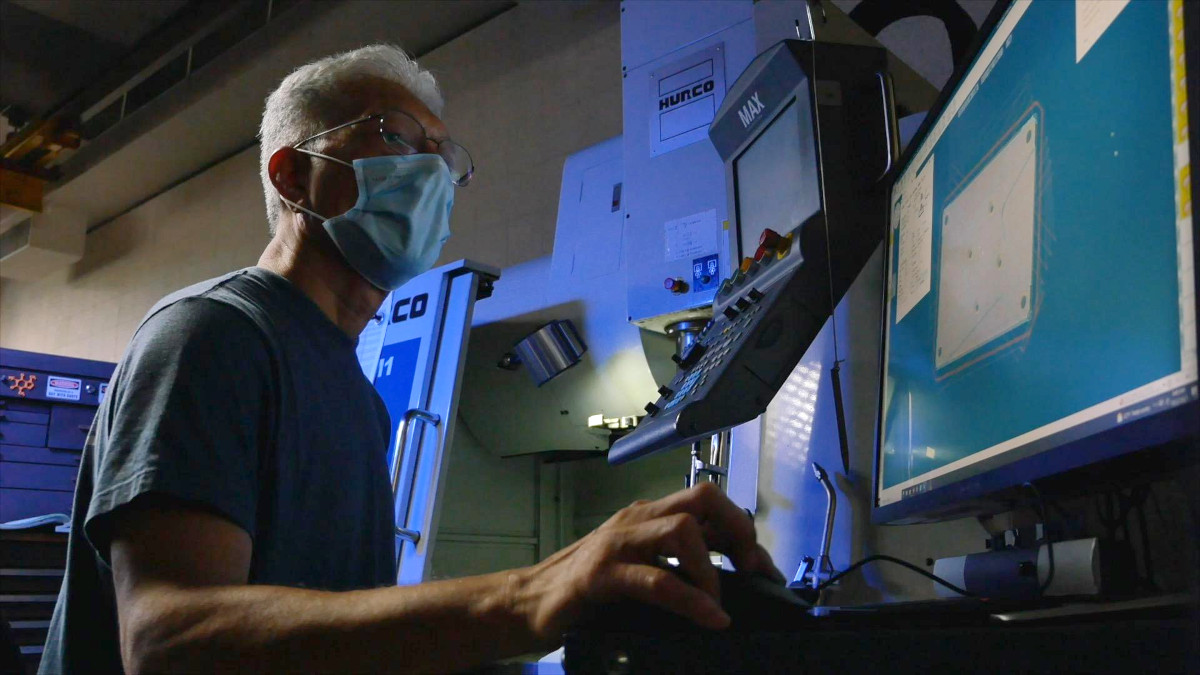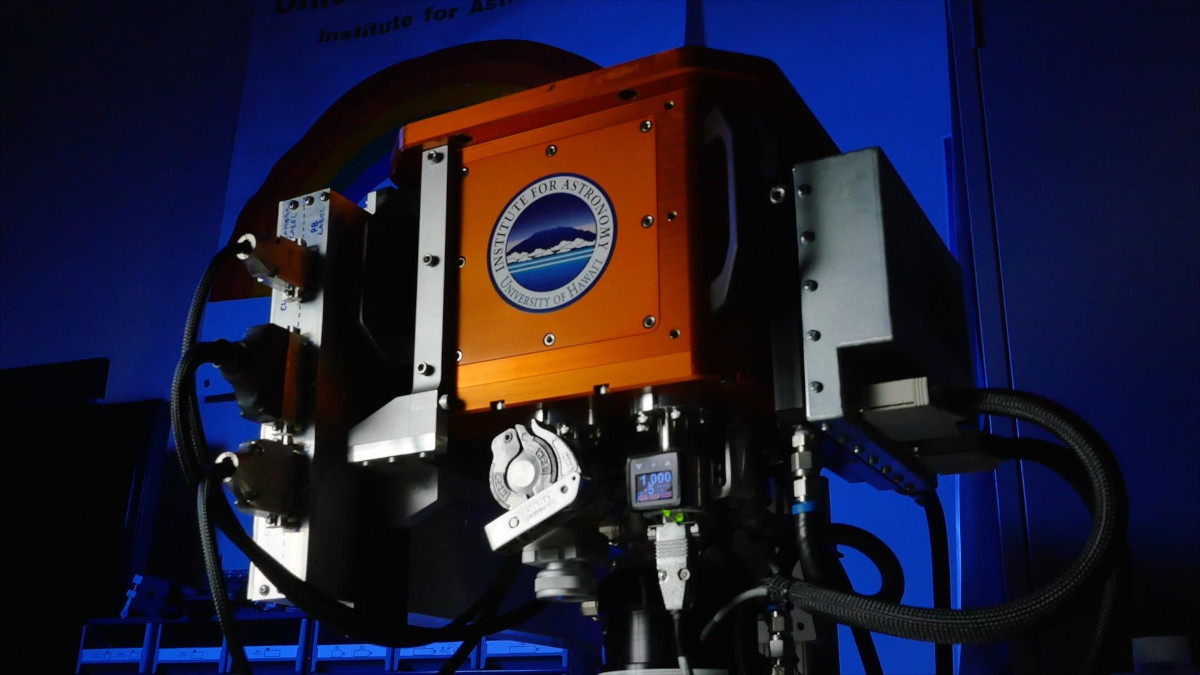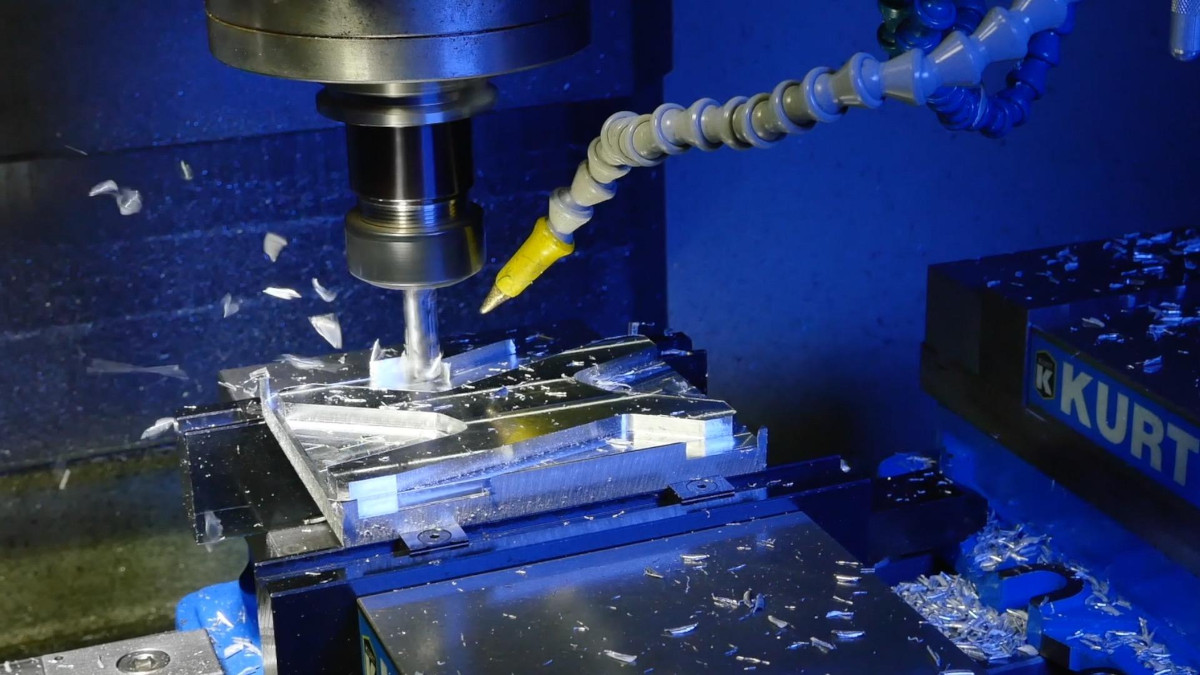(BIVN) – On Sunday, the University of Hawaiʻi announced that it is in the initial stages of creating a space engineering and instrument development center on the the UH-Hilo campus, at facilities at the UH Institute for Astronomy.
University officials say the Space Sciences Initiative will “attract millions of dollars in funding, expand Hawaiʻi’s technology sector and create more high-paying jobs on Hawaiʻi Island and across the state.”
UH received $2 million in state funds to start the initial design of the facility, which officials estimate will cost about $30 to $40 million to build. University students “will receive valuable hands-on training at the center producing instruments for space-based missions and ground-based telescopes,” officials say.
From the University of Hawaiʻi news release:
Ground observatories, including those based in Hawaiʻi, spend tens of millions of dollars on a recurring basis to upgrade equipment and build instrumentation. That engineering effort typically occurs outside of the state and the planned facility will be designed to bring a larger fraction of that activity to Hawaiʻi. The additive manufacturing and precision machining capabilities of the center and its personnel will also be able to support the Pearl Harbor Naval Shipyard and other Department of Defense entities as well as aerospace and private sector partners.
“The components of a successful center of this type already exist at UH, and this new initiative is helping to cohesively and effectively bring them together,” said UH Vice President of Research and Innovation Vassilis L. Syrmos. “We are on the verge of investing in place-based research and training of our students and faculty on Hawaiʻi Island, where space engineering and advanced manufacturing are at the forefront of a high-tech industry that can support a locally based, well-educated and highly paid workforce.”
The center is an interdisciplinary collaboration between the UH Institute for Astronomy (IfA), UH Hilo and the UH Mānoa College of Engineering (COE), which is among the 15% of engineering schools in the country that have dedicated aerospace or related programs. IfA astronomers and engineers are already developing some of the most advanced astronomical instruments in the world including:
• Near-infrared sensors on the James Webb Space Telescope,
• Adaptive secondary mirrors with broad applications in telescopes
• Software for the NASA Nancy Grace Roman Space Telescope to process thousands of observations of supernovae or exploding stars.
• A new instrument that provides adaptive optics correction using objects invisible to the naked eye“This is a natural fit as Hawaiʻi is home to the best astronomy sites in the world and one of the world’s best research universities,” said UH Mānoa COE Dean Brennon Morioka, one of the champions of the p rogram. “UH is now among just a handful of universities developing an on-campus, astronomical manufacturing center and it will have a far-reaching impact on our students, our state and beyond.”
Center construction is tentatively scheduled to be completed by 2030 subject to securing funding for the construction phase, but the associated academic programming will begin in the 2024 fall semester. UH Hilo will begin an initial offering of pre-engineering courses while the new high-tech manufacturing center is developed.
“The launch of the Space Sciences Initiative will provide valuable opportunities for UH Hilo and our students thanks to this collaboration with UH Mānoa and the UH system,” said UH Hilo Chancellor Bonnie Irwin. “It expands our academic offerings that will in turn create more career opportunities for our students, especially those from Hawaiʻi Island.”
Ten new full-time faculty are now being recruited to teach the prerequisite engineering courses at UH Hilo and serve as the core engineering team for the new center. Five of the new faculty will be located at IfA’s Hilo facility and the rest at the COE at UH Mānoa. UH Hilo students can transfer those credits to UH Mānoa where they can go on and complete their engineering degrees. There are approximately 500 jobs at observatories on Maunakea and Haleakalā that are held by engineers and technicians who specialize in optics, software, data science, materials, mechanics, systems and cryogenics.
“UH Hilo students are predominantly from Hawaiʻi Island and now they will have an academic pathway into engineering and ultimately careers that support Hawaiʻi observatories,” said UH IfA Director Doug Simons, another champion of the program. “Right now, these well-paying jobs too often go to non-residents, who are more likely to leave after a few years. We want these jobs to go to local kids. That will not only be good for them and their families, it will increase stability in the astronomy sector and broadly benefit our community.”
A UH Economic Research Organization report on astronomy in Hawaiʻi found the industry in 2019 supported the employment of 1,313 residents and had a total economic impact (output of goods and services) of $221 million.




by Big Island Video News6:45 pm
on at
STORY SUMMARY
HILO, Hawaiʻi - The Space Sciences Initiative will "attract millions of dollars in funding, expand Hawaiʻi's technology sector and create more high-paying jobs on Hawaiʻi Island and across the state", officials expect.